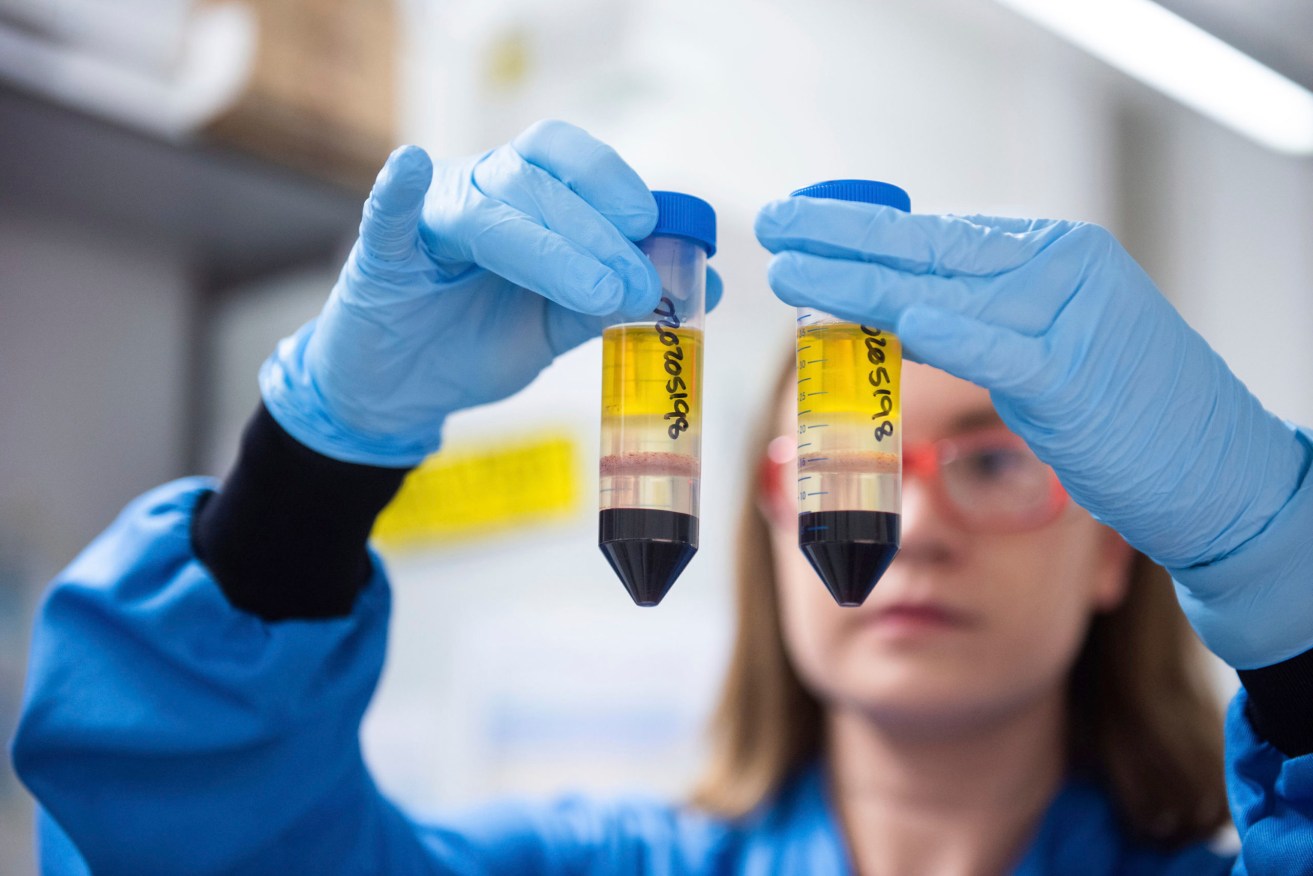CSIRO warns about the five virus families most likely to cause ‘next pandemic’
Australia’s leading scientific organisation has called for a boost to virus research and vaccine manufacturing capabilities in a bid to future-proof the country from pandemics.

Melbourne scientists are close to creating a vaccine to treat all forms of flu. (John Cairns/University of Oxford via AP, File)
In a new report, the CSIRO outlined 20 recommendations for what Australia would need to do to strengthen pandemic preparedness, following on from the experiences of Covid-19.
Among the recommendations were to improve research into five virus families that have the greatest potential to become future pandemics.
Scientists also identified a need to diversify the types of vaccines made in Australia to be better prepared.
“The absence of manufacturing capabilities across diverse vaccine technologies reduces Australia’s capability to produce vaccines onshore for an emergent viral threat,” the report said.
“Australian companies face barriers, such as high input costs and small population for clinical trial enrolments.”
The CSIRO report also called for an expansion of screening for commercially available therapeutic antiviral medications that could be used as treatments, along with the creation of a central database of therapeutics.
The recommendations in the report came following discussions with more than 140 experts across industry, research and government areas.
The findings of the report also identified inconsistencies with diagnostic requirements, which needed to be diversified due to the increased demands on labs during pandemics.
A lack of national coordination on genomic analysis was also identified, with calls to set up a national authority, as well as developing national data standards.
“Australia faces data sharing limitations due to the varying governance of health systems within and across jurisdictions,” the report said.
“This restricts policy decisions being made in a timely and well-informed manner, especially during pandemics.”
The CSIRO said the report findings were critical, given the rise in viral disease outbreaks in the past century.
“On average, two novel viruses are appearing in humans each year, and the proportion that give rise to larger outbreaks is growing,” the report said.
“The increasing occurrence of virus spill-over from animal populations over the last 100 years has largely been driven by environmental destruction, climate change, urbanisation, human encroachment on natural habitats, and increased global trade and travel.”
The release of the report comes after Australia surpassed 10 million total Covid cases.
Monday saw a further 8704 cases identified nationally, with 11 deaths.
National cabinet is set to discuss on Wednesday a proposal to lower the mandatory isolation requirements for people with Covid from seven to five days.
LATEST 24-HOUR COVID-19 DATA:
Victoria: 2950 cases, 18 deaths, 337 in hospital with 22 in ICU
NSW: 4271 cases, 37 deaths, 1834 in hospital with 40 in ICU
Tasmania: 259 cases, no deaths, 30 in hospital with one in ICU












